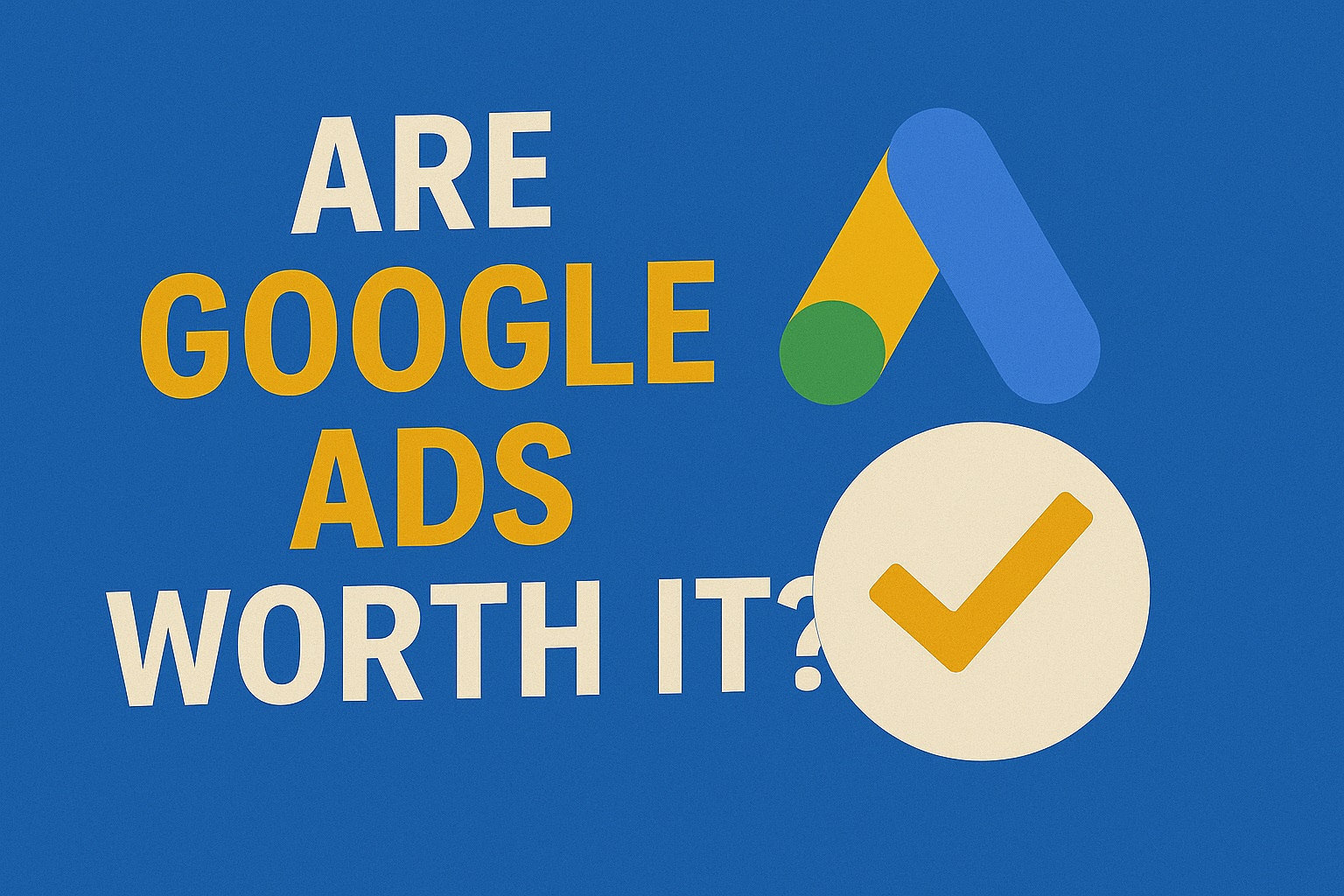For many small business owners, marketing budgets are tight, so every dollar must be spent wisely. This leads to an important question: are Google Ads worth it? Google Ads offers access to millions of potential customers actively searching for products and services, but costs can add up quickly if not managed carefully.
Determining whether Google Ads is a worthwhile investment depends on your industry, competition, goals, and approach. In this article, we’ll break down the benefits, drawbacks, how Google Ads compares to other marketing channels, and what kind of return on investment (ROI) small businesses can realistically expect.
The Benefits of Google Ads for Small Businesses
Google Ads offers several advantages that make it a valuable tool for small businesses:
- Targeting Intent-Driven Audiences:
Google Ads allows businesses to reach users who are actively searching for specific products or services, meaning your ads show to people already interested in what you offer. - Flexible Budgets and Scalability:
You can set daily budgets and adjust bids, making Google Ads accessible for small businesses with limited funds. Campaigns can be scaled up or down based on performance and growth. - Fast Results and Measurable Performance:
Unlike organic methods that take time, Google Ads can generate immediate traffic and leads. The platform provides detailed analytics, enabling you to track clicks, conversions, and ROI.
These benefits can help small businesses drive targeted traffic and grow quickly when campaigns are properly managed.
Potential Drawbacks of Google Ads
While Google Ads can be highly effective, small businesses should be aware of some challenges:
- High Competition and Cost in Some Industries:
Popular industries like legal, finance, or insurance often have expensive keywords, which can drive up costs and make profitability difficult without strong campaign management. - Learning Curve and Time Required to Manage Effectively:
Running successful Google Ads campaigns requires understanding of bidding, keyword research, ad copywriting, and analytics. Small business owners may need to invest time or hire experts to avoid wasted spend. - Risk of Wasted Spend Without Proper Optimization:
Without ongoing optimization and monitoring, ads can run inefficiently, targeting the wrong audience or using ineffective keywords, resulting in low returns.
Being aware of these challenges helps small businesses decide if Google Ads is a good fit and plan accordingly.
Comparing Google Ads to Other Advertising Channels
When deciding where to invest marketing dollars, it’s helpful to compare Google Ads with other options:
- Google Ads vs. SEO:
SEO (Search Engine Optimization) drives organic traffic over time without direct cost per click, but it requires patience and ongoing effort. Google Ads delivers faster, targeted traffic but at a cost. - Google Ads vs. Social Media Advertising:
Social platforms like Facebook and Instagram allow detailed audience targeting based on interests and demographics. Google Ads targets users based on search intent, often resulting in higher conversion rates for purchase-ready audiences. - Google Ads vs. Traditional Local Advertising:
Methods like print ads, radio, or flyers can build local awareness but lack precise targeting and measurable ROI. Google Ads provides detailed performance data and can be more cost-effective for generating leads.
Each channel has strengths, and combining them strategically can often yield the best results.
Is the ROI Worth It? Key Considerations
Whether Google Ads delivers a positive return on investment (ROI) depends on several factors:
- Proper Campaign Management:
Success requires setting clear goals, selecting relevant keywords, crafting compelling ads, and regularly optimizing campaigns based on performance data. - Conversion Tracking:
Tracking actions like purchases, sign-ups, or calls helps measure real results beyond clicks, allowing better budget allocation. - Industry and Competition:
Some industries have higher costs per click but also higher customer lifetime values, making paid ads more profitable. - Business Readiness:
Having a well-designed website or landing page that converts visitors is critical. Driving traffic without a strong user experience can waste ad spend.
When managed well, Google Ads can deliver measurable and scalable ROI, especially for small businesses targeting local or niche markets.
Conclusion
Google Ads can be a valuable marketing channel for small businesses, offering precise targeting, flexible budgets, and quick results. However, its effectiveness depends heavily on proper management, clear goals, and ongoing optimization.
While Google Ads may not be the perfect fit for every business, those willing to invest time or resources in learning and refining their campaigns often find it a worthwhile investment. Combining Google Ads with other marketing strategies and focusing on ROI can help small businesses grow efficiently and competitively in their markets.
